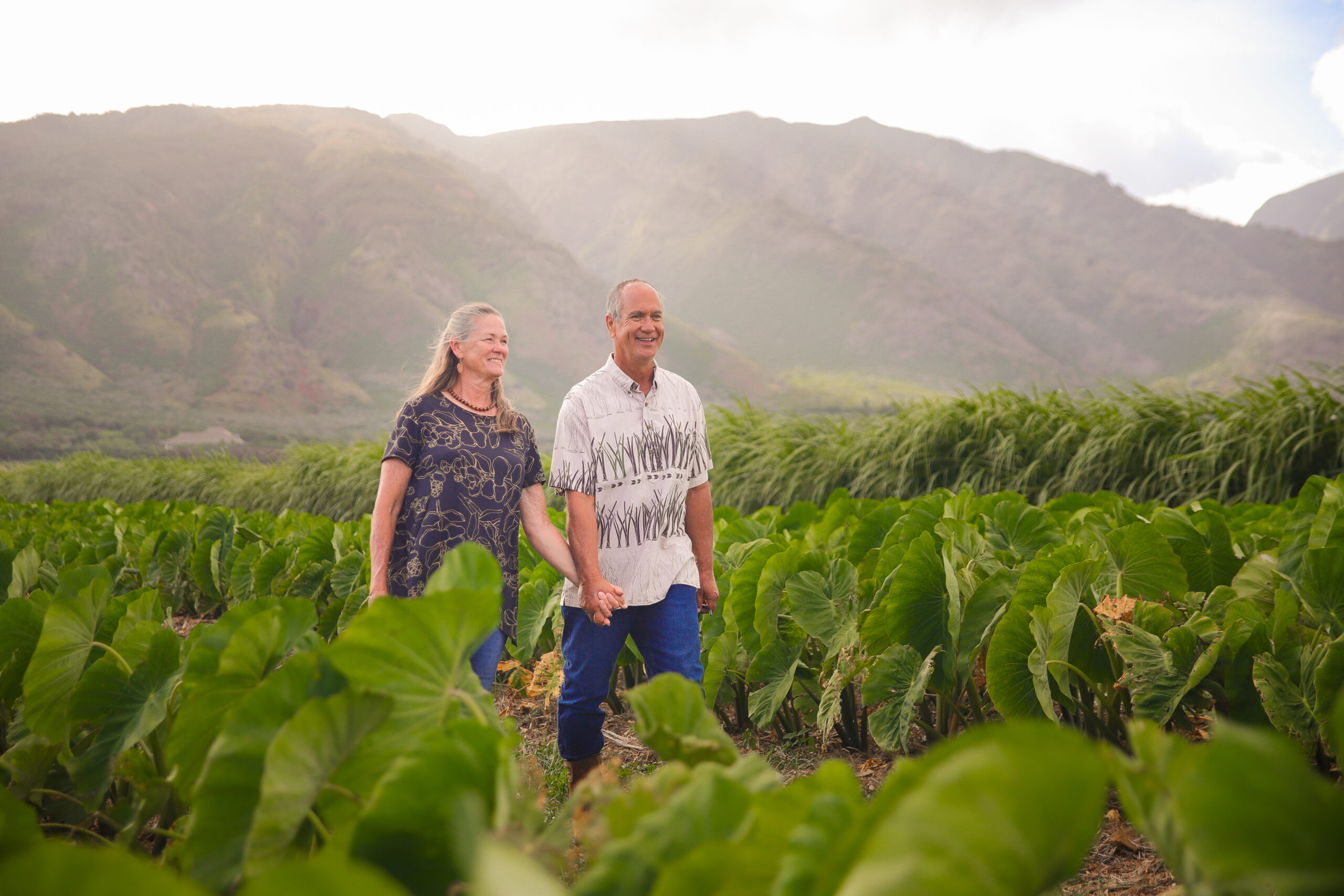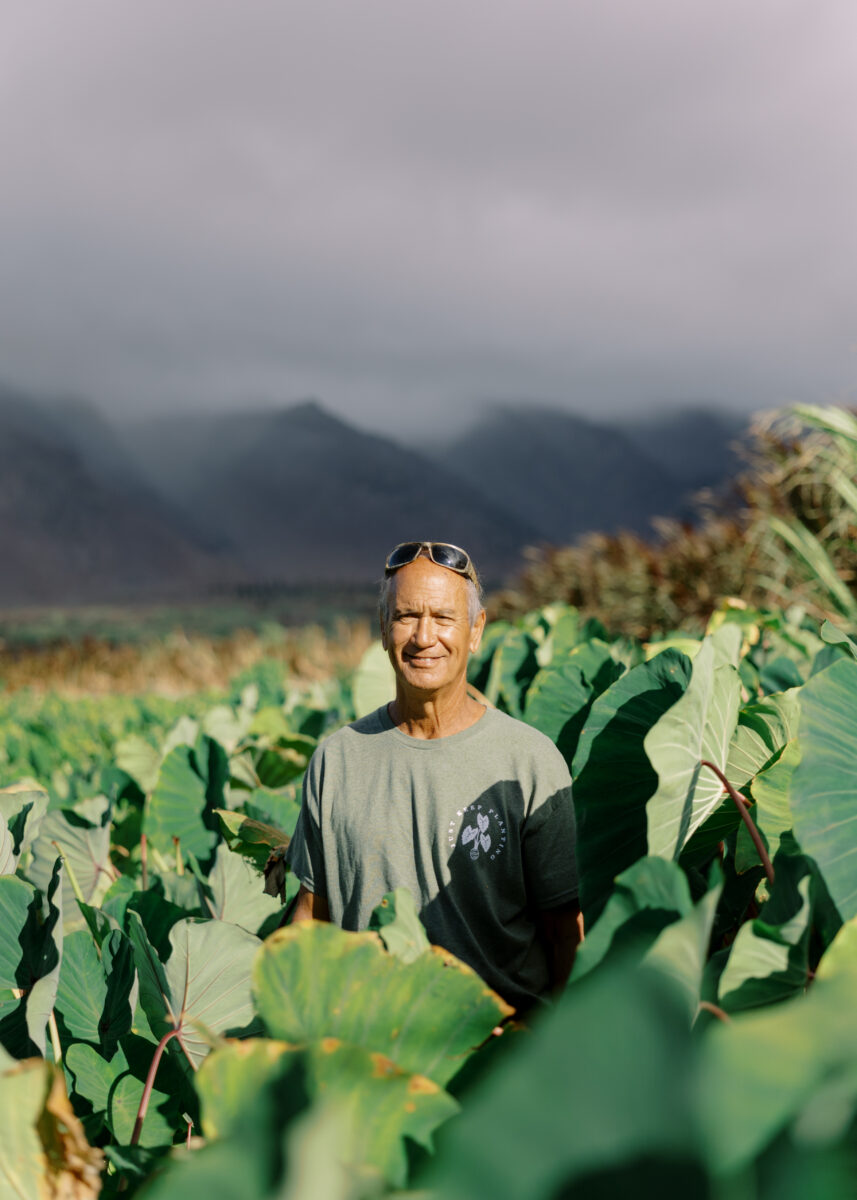
Bobby Pahia walks the land like his ancestors before him, hands stained with the rich, red soil of Maui. As the sun rises over Waikapū, he moves through his mala, water giving life to his kupuna, whispering the history of his people. For Bobby, farming kalo is more than just growing food—it is a sacred connection to the land, a responsibility passed down through generations.

Bobby was born and raised on Oahu, Bobby grew up with a deep respect for the 'āina. He learned early on that kalo is not just a staple crop; it is a symbol of Hawaiian identity, an embodiment of resilience and sustenance. Despite the challenges of modern agriculture, climate change, and land access, he remains steadfast in his mission to preserve traditional Hawaiian farming methods.
At Hawaii Taro Farms, Bobby cultivates kalo in the traditional way, using knowledge honed by centuries of Hawaiian farmers. His farm supplies fresh kalo to local families, restaurants, and cultural practitioners, ensuring that poi—Hawai‘i’s traditional staple food—remains a part of daily life. But beyond that, he is a teacher, mentoring the next generation in the values of mālama 'āina, sustainability, and food sovereignty.
With every keiki that learns to plant kalo, with every family that gathers to pound poi, Bobby sees hope for the future. His work is not just about farming—it is about keeping Hawaiian culture alive, one taro patch at a time. And as the wind carries the scent of wet earth and growing kalo through the valley, he knows he is walking in the footsteps of his ancestors, ensuring that the land—and the legacy of kalo—will continue to thrive for generations to come.
